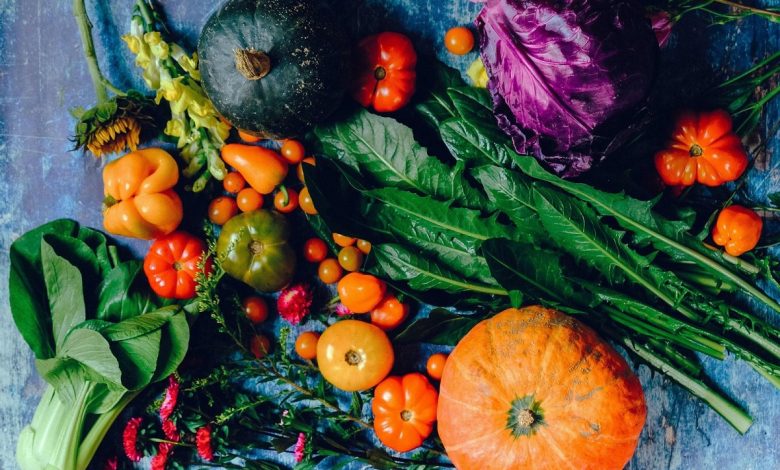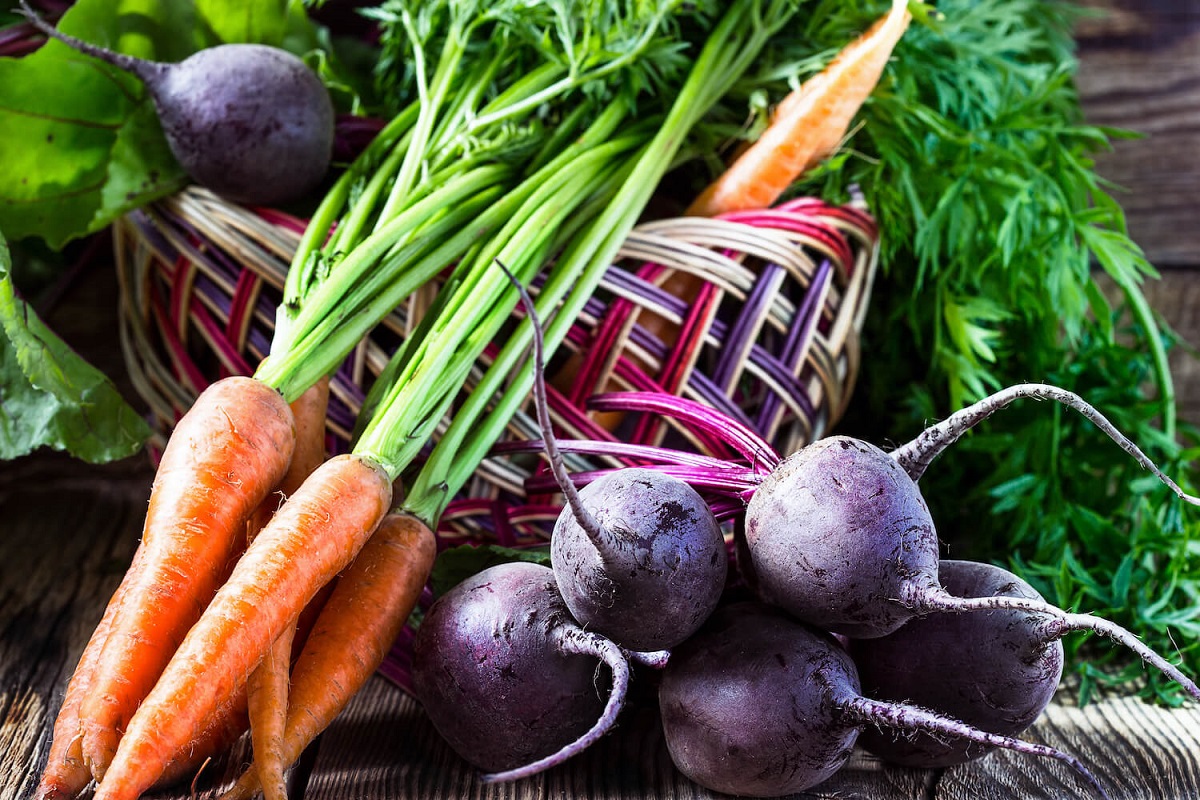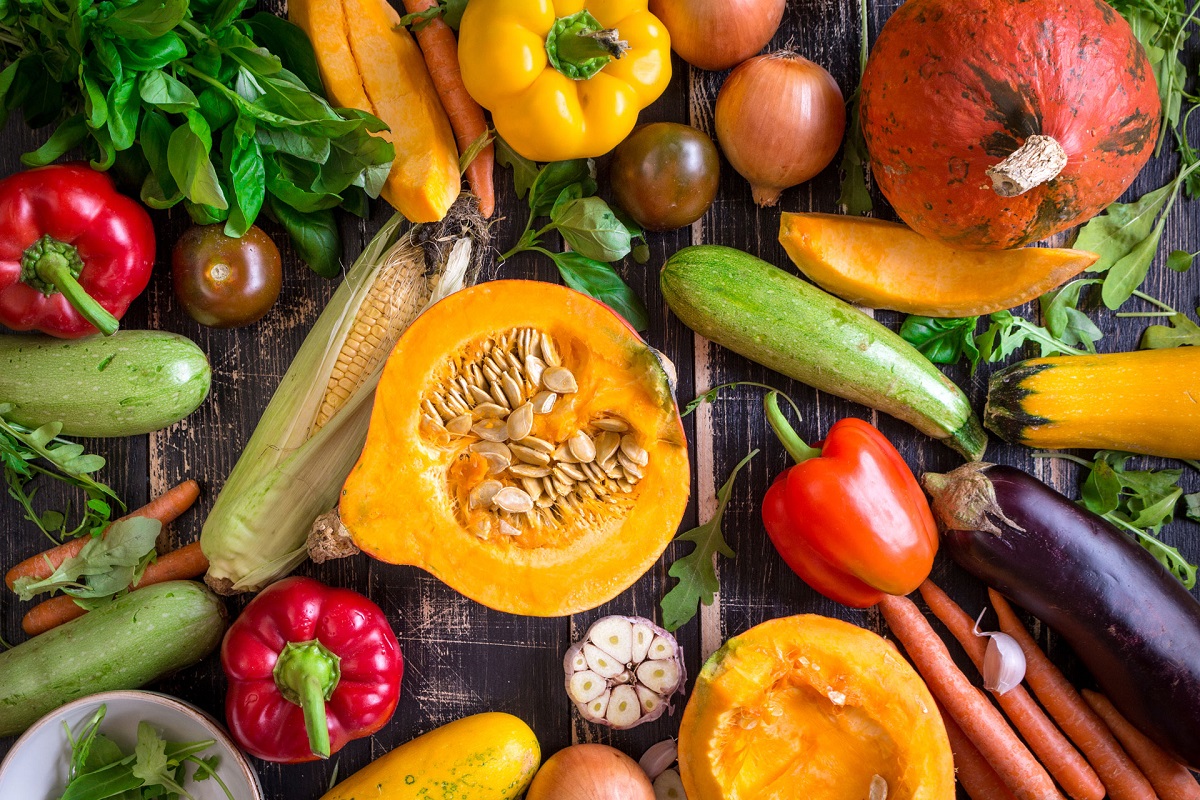Autumn Veggies: The Nutritional Bounty of Seasonal Vegetables

Autumn Veggies: As the leaves turn vibrant shades of red, orange, and yellow, autumn heralds a transition not just in the environment but also in the bounty of fresh produce available.
Autumn Veggies, Autumn vegetables offer a unique array of flavors, colors, and health benefits that reflect the season’s changing temperatures and shorter days. This essay explores the significance of autumn vegetables, their nutritional benefits, and how they can enhance our diets during this cozy time of year.
The Autumn Veggies
The Rich Harvest Of Autumn Vegetables

Autumn Veggies, Autumn is a time of harvest, and many vegetables reach their peak during this season. Root vegetables, cruciferous vegetables, and leafy greens dominate the autumn harvest, providing a diverse range of options for home cooks and health enthusiasts alike. Some of the most popular autumn vegetables include:
Pumpkins: A quintessential autumn vegetable, pumpkins are rich in beta-carotene, which the body converts into vitamin A. This nutrient is essential for eye health and immune function. Pumpkins are also low in calories and high in fiber, making them a great addition to soups, pies, and smoothies.
Sweet Potatoes: With their natural sweetness and creamy texture, sweet potatoes are a staple in many autumn dishes. They are packed with vitamins A and C, potassium, and antioxidants, promoting overall health. Sweet potatoes can be roasted, mashed, or used in casseroles, providing versatility in the kitchen.
Brussels Sprouts: Often seen as a polarizing vegetable, Brussels sprouts shine in the fall. They are a member of the cruciferous family, known for their cancer-fighting properties. High in vitamins K and C, folate, and fiber, Brussels sprouts can be roasted, sautéed, or even grilled for a delightful side dish.
Carrots: Harvested in abundance during autumn, carrots are rich in vitamins A and K, as well as antioxidants. Their natural sweetness makes them a favorite in soups, salads, and snacks. Carrots can be enjoyed raw, steamed, or roasted, making them a versatile addition to any meal.
Kale: This leafy green has gained popularity in recent years, and for good reason. Kale is a nutritional powerhouse, packed with vitamins A, C, and K, as well as calcium and iron. Its robust flavor and hearty texture make it ideal for salads, smoothies, and sautéed dishes.
Beets: Beets are a vibrant root vegetable that not only adds color to dishes but also provides numerous health benefits. Rich in nitrates, beets can help improve blood flow and lower blood pressure. They are high in fiber and antioxidants, making them a healthy choice for salads, soups, and juices.
Nutritional Benefits Of Autumn Vegetables
Autumn Veggies, The nutritional benefits of autumn vegetables extend beyond their individual contributions. Eating a variety of seasonal vegetables ensures a diverse intake of vitamins, minerals, and antioxidants, all of which support overall health. Incorporating these vegetables into our diets can lead to several health benefits:
Boosted Immunity: Autumn is often associated with the onset of colds and flu. The vitamins and minerals found in seasonal vegetables, particularly vitamins A and C, play a crucial role in bolstering the immune system. Consuming a colorful array of vegetables can help strengthen the body’s defenses against illness.
Improved Digestive Health: Many autumn vegetables are high in fiber, which is essential for healthy digestion. Fiber helps regulate bowel movements, prevent constipation, and support a healthy gut microbiome. Including fiber-rich vegetables in meals can aid in digestion and promote overall gut health.
Weight Management: Autumn vegetables tend to be low in calories while being high in nutrients and fiber, making them an excellent choice for those looking to maintain a healthy weight. Their high fiber content promotes feelings of fullness, helping to curb overeating.
Heart Health: Many autumn vegetables, such as beets and kale, are known to support cardiovascular health. They are low in saturated fat and high in potassium, which helps regulate blood pressure. The antioxidants found in these vegetables also contribute to reducing inflammation and improving heart health.
Enhanced Mood: The changing seasons can sometimes lead to mood fluctuations. Eating a diet rich in vegetables, particularly those high in vitamins and minerals, can support mental well-being. Nutrient-dense foods have been linked to improved mood and cognitive function.
Creative Ways To Incorporate Autumn Vegetables

Autumn Veggies, With the abundance of autumn vegetables available, there are countless ways to incorporate them into meals. Here are some creative ideas:
Soups And Stews: Autumn is the perfect time for warming soups and stews. Combining root vegetables like carrots, sweet potatoes, and parsnips creates a comforting and nutritious dish.
Roasted Vegetable Medleys: Roasting enhances the natural sweetness of vegetables. A medley of Brussels sprouts, carrots, and beets drizzled with olive oil and herbs makes for a delicious side dish.
Salads: Incorporating kale, roasted beets, and pumpkin seeds into salads adds texture and flavor. A simple dressing of olive oil and balsamic vinegar complements the earthy flavors of these vegetables.
Purees And Mash: Sweet potatoes and carrots can be mashed or pureed for a creamy side dish. Adding spices like cinnamon or nutmeg can elevate the flavors and make them more seasonal.
Stir-Fries: Autumn vegetables like Brussels sprouts and kale can be quickly sautéed with garlic and olive oil for a nutritious and colorful stir-fry.
Final Thought
Autumn Veggies, Autumn is a season of change and abundance, particularly when it comes to fresh vegetables. The nutritional bounty of autumn vegetables not only enhances our meals but also supports our health in various ways. By embracing the flavors and benefits of these seasonal offerings, we can nourish our bodies and enjoy the unique tastes of fall. As we savor the harvest, let us celebrate the vibrant array of autumn vegetables that contribute to our well-being and delight our palates.
Also Read:
How Fall Affects The Nervous System: Managing Seasonal Changes For Better Mental And Physical Health
The Vital Role Of Minerals In Maintaining Optimal Health




